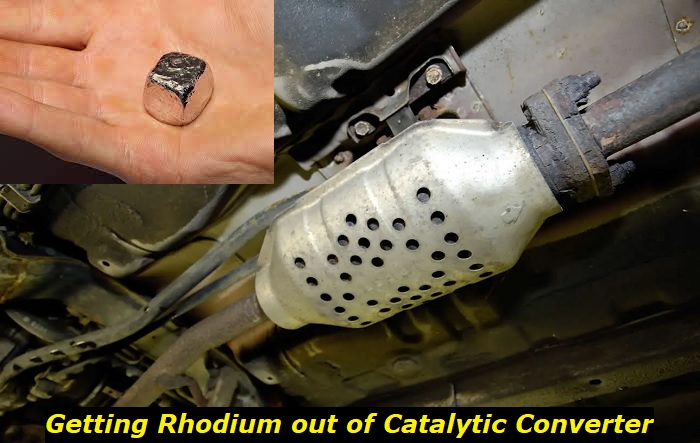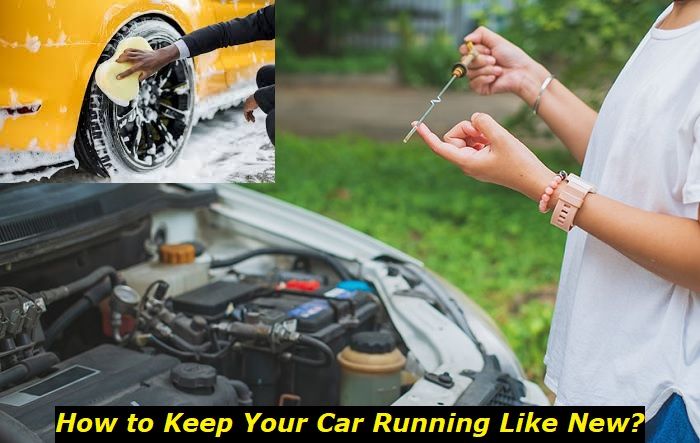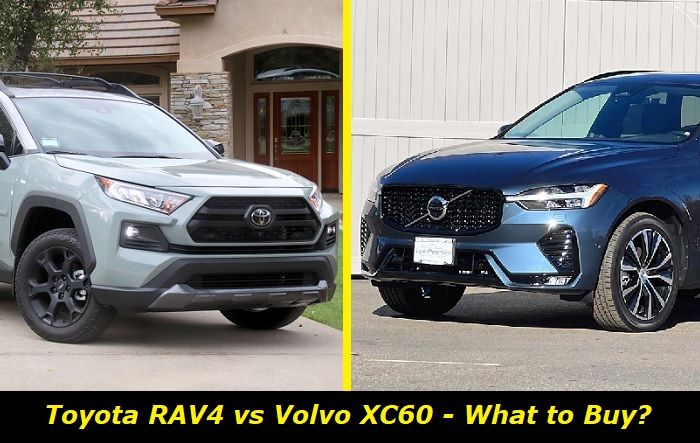Rhodium is a precious metal with a really tempting price. Also, this rare metal is widely used in catalytic converters and helps reduce the amount of harmful gases emitted into the air by cars. Rhodium is one of three precious metals found in the majority of cat converters along with platinum and palladium.
Since this metal is really expensive, a lot of car owners wonder if they can extract rhodium from a catalytic converter and sell it.
In short, you can't extract rhodium from a catalytic converter because it would take a lot of effort, tools, time, and money. Also, the process of extracting this precious metal is extremely dangerous if completed improperly and can harm your health. One more reason why you shouldn't do it is that selling one or two grams of rhodium is just impossible.
But still, let's find out more about rhodium in your converter and some ways to extract it or earn money on it without even doing anything!

How much rhodium can you get from one converter?
On average, a modern catalytic converter contains 1 to 3 grams of rhodium. These figures dropped within the nearest decade because the metal skyrocketed in price and car manufacturers just had to do something to avoid spending a really huge amount of money on converters.
But some older converters from big trucks and SUVs may have over 6 grams of rhodium in them. Exactly these types of converters are the most valuable on the market. Even if they are broken or damaged, catalytic converter recyclers will gladly buy them for hundreds of dollars.
How much does rhodium cost?
The price of rhodium fluctuates really heavily. As of today, May 2023, the price of 1 gram of rhodium is $255 (about $8,000 per ounce). But in May 2022, rhodium cost almost twice as much because of the huge spike in demand.
Prices for rhodium are obviously forming one of the most important factors that determine the price of scrap catalytic converters. While other metals have more or less stable prices with slight growth every single year, rhodium is a rollercoaster among precious metals and it feels more like a lottery if you are an investor.
So, even with today's "bad" price for rhodium, you may easily count that an average catalytic converter from a passenger car contains rhodium worth about $450. Some older cat converters from big trucks or sports cars can have rhodium for $2000 and even more in them.
The question that your brain automatically asks is obvious: how can I extract rhodium from catalytic converters and sell it? Let's see.
Extracting rhodium and other metals from catalytic converters
To work with scrap catalytic converters, you need to open a business, get a license for recycling, and pay taxes as well as other license payments, etc. So, legally, you aren't likely to start this all to sell a couple of grams of rhodium. But, maybe, you can secretly cut a catalytic converter in your garage and take this rhodium out?
Well, things are not as straightforward as they might seem at first. Rhodium doesn't like there like a hidden gem inside your converter. It's presented in the form of a very thin film and may also come as an alloy of metals for better catalyzation of gases.
So, to get it out, you will need some equipment. I won't dig deeply into the technology of recycling. Basically, professionals will use three stages of working with catalytic converters.
Here they are:
- First: mechanical stage. They will cut the metal shell and take the ceramic elements out of the converter. The metal shell then goes to recycling.
- Second: thermal stage. They will put these ceramic filtering elements from cat converters into a special furnace that will heat it all to hell-like temperatures and melt some metals out of it.
- Third: chemical stage. At this stage, they will use chemical elements to launch some reactions and clean the metals that they got in the first two stages.
This is certainly not possible to do in your garage unless it has been turned into an industrial chemical lab. Just cutting the converter and scraping that rhodium off the ceramic elements will not work - you will still need to clean it and separate it from other metals in the alloy.
Also, these procedures have to be conducted with a lot of safety equipment that would save you from being burned or chemically affected in the process. I don't recommend even starting this process because, without professional equipment and knowledge, you aren't likely to get any metals out of the converter.
Selling rhodium - some more bad news
If you even managed to find some proper way to get those 2-3 grams of rhodium out of your old converter, you are going to have another issue. Where do you think you can sell this amount of the precious metal that is used in industries that need pounds of this metal?
Recycling companies sell large amounts of precious metals that they get from hundreds of old catalytic converters and also from other sources. It means that companies will sell pounds or kilograms of these metals to industrial companies.
Now imagine your announcement on eBay where you advertise 2 grams of rhodium for sale. No one will even pay attention to such an offer and you are likely to be the eternal owner of this amount of the precious metal.
The only possibility is to address one of the recycling companies. But don't expect they will pay you the full market price for the metal. They will still need to clean it and prepare for sale and this takes quite a lot of heat energy and other resources. So, the price will be at least twice cheaper than you see on those market charts.
What's the alternative way of selling your old catalytic converter?
The best way to deal with an old catalytic converter is to sell it. I've already prepared the article about catalytic converter prices before and you should read it to learn more about the process of selling the old cat converter.
Here are just some outlines:
- you can sell an old catalytic converter to a recycling company and this is the most lucrative way;
- recycling companies evaluate your cat converter according to its serial number showing the actual weight of precious metals inside them;
- the average price of the old catalytic converter is now about $180 but the price may vary depending on the model and type of the cat;
- you should send pics of your converter to different recycling companies and then compare their offered prices;
- also, you should check if the recycling company you've chosen agrees to pay for shipping.
This way, you will sell old catalytic converters at their maximum price. Almost all other buyers of old cat converters will offer just a fraction of that price because they are resellers and just want to earn money on your converter by reselling it to one of the recycling companies.
Why should you sell your old cat converter?
Many American car owners don't bother themselves with old parts. They may just throw the old catalytic converter onto one of the shelves in their garages and forget about this part. But this leads to two bad things.
Firstly, the converter will gradually decompose and contaminate the area where it's stored. Potentially, this will cause damage to ecology, especially if this converter eventually gets to the trash and somehow appears in the open nature.
Secondly, rare precious metals will be just buried while they might go back to manufacturers and reduce the need for those metals that are usually mined in a not really nature-friendly way.
Also, you will lose the money that you could spend on the new catalytic converter.
As you see, a lot of negative factors show up when you don't sell your old catalytic converter to a recycling company. But even more problems will be there if you try to get rhodium and other metals out of the converter by yourself.
Should I wait for rhodium to cost more?
I'm a car mechanic and writer, so I'm not really here to give you any financial advice. Also, even a good financial expert can't predict if rhodium prices will go back to their maximum values. Lots of factors are to be considered here like rhodium mining, catalytic converter technologies, new laws and regulations for recycling companies, new taxes, etc.
Personally, I think that waiting till rhodium costs more is not efficient. In 2022, when rhodium was at its peak price, recycling companies paid an average of $220 for a regular converter. Now, they pay about $180 while rhodium is almost twice cheaper than it was a year ago. So, is it worth waiting? I don't think so.
In conclusion, I should say that getting rhodium out of your catalytic converter in your garage is not impossible but not recommended and may be pretty dangerous. So, just sell your scrap catalytic converter to specialists.
About the authors
The CarAraC research team is composed of seasoned auto mechanics and automotive industry professionals, including individuals with advanced degrees and certifications in their field. Our team members boast prestigious credentials, reflecting their extensive knowledge and skills. These qualifications include: IMI: Institute of the Motor Industry, ASE-Certified Master Automobile Technicians; Coventry University, Graduate of MA in Automotive Journalism; Politecnico di Torino, Italy, MS Automotive Engineering; Ss. Cyril and Methodius University in Skopje, Mechanical University in Skopje; TOC Automotive College; DHA Suffa University, Department of Mechanical Engineering






Add comment